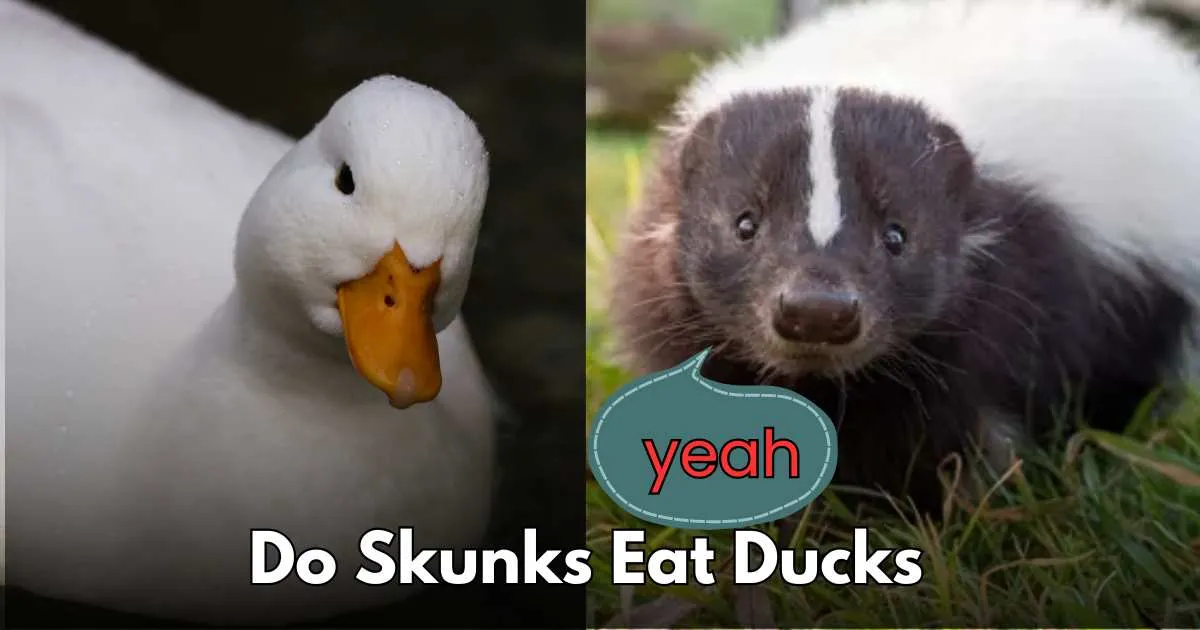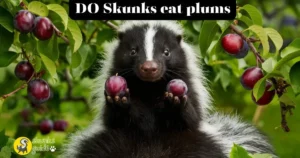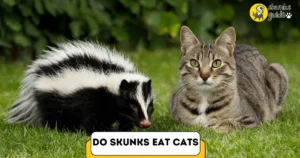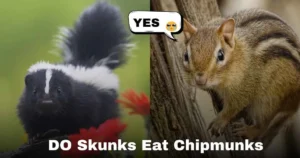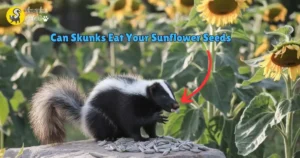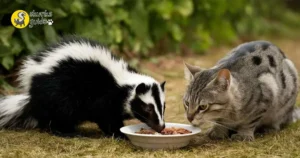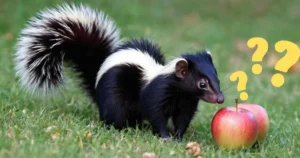Do Skunks Eat Ducks?
While skunks are opportunistic omnivores with a varied diet, ducks are not a typical part of their menu. Skunks usually focus on insects, fruits, small mammals, and eggs. However, in specific circumstances—such as food scarcity or encountering unprotected duck eggs or ducklings—skunks may prey on ducks.
Skunks: Omnivores With Opportunistic Habits
Skunks are highly adaptable feeders that consume a range of foods:
Birds and Eggs: Ground-nesting birds, such as ducks, may attract skunks due to their eggs or vulnerable hatchlings.appens when they stumble upon ducks? Here we explore the intriguing dynamics between these two creatures and determine if skunks pose a threat to our feathered friends.
Insects and Grubs: Beetles, crickets, and larvae are staple items.
Small Mammals: Mice, voles, and shrews make up a portion of their diet.
Fruits and Plants: Seasonal berries, nuts, and leaves are included.
Birds and Eggs: Ground-nesting birds, such as ducks, may attract skunks due to their eggs or vulnerable hatchlings.
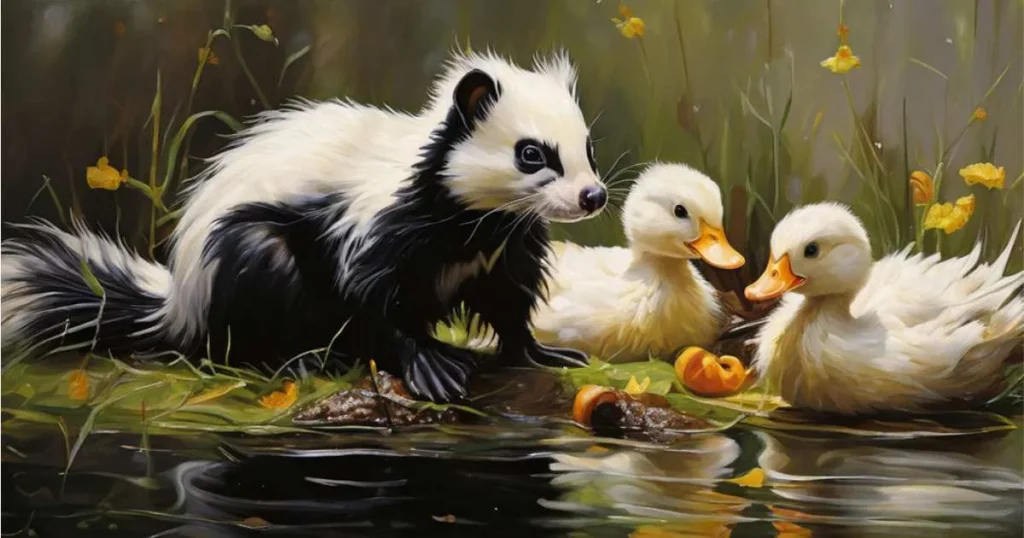
Skunks Preying On Ducks: Rare but Possible
While adult ducks are too large and mobile to be common skunk prey, skunks may target:
- Eggs: Ground-nesting ducks leave their eggs vulnerable to predation.
- Ducklings: Young, defenseless ducks are easier prey than adults.
Factors That May Lead Skunks to Prey on Ducks
- Food Scarcity: A lack of usual food sources may push skunks to seek out unconventional prey.
- Opportunistic Behavior: A poorly protected nest or a stray duckling may tempt a skunk.
- Habitat Overlap: In areas where skunks and ducks coexist, such interactions are more likely.
Ducks’ Defense Against Predators
Ducks have several strategies to protect themselves and their offspring:
Aggressive Displays: Mother ducks may hiss, peck, or feign injury to protect their young.
Nesting Behavior: Choosing secluded and well-camouflaged nesting sites.
Group Dynamics: Ducks often flock together for safety, utilizing a “many-eyes” strategy to detect predators.
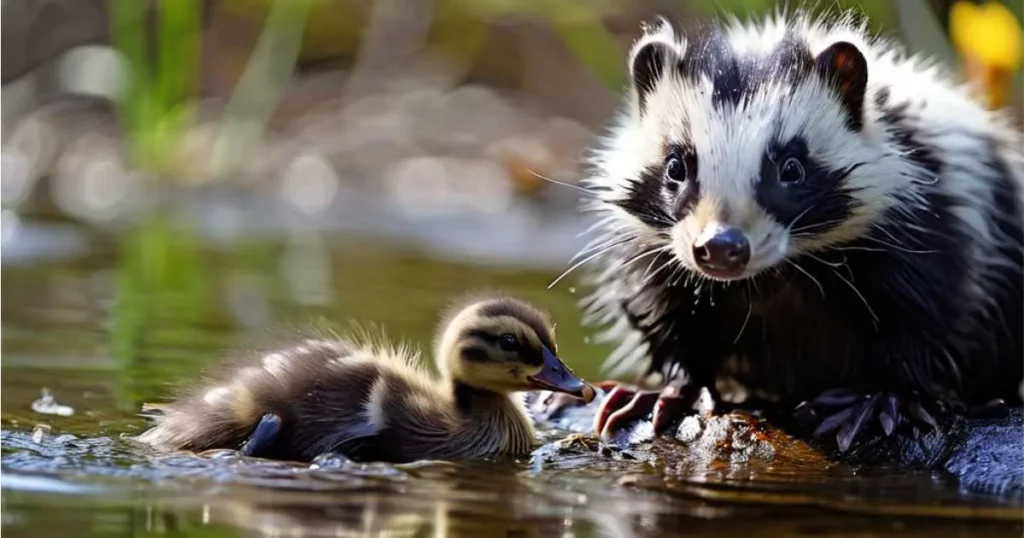
Human Role in Skunk and Duck Interactions
Human activities can influence the likelihood of skunks preying on ducks:
Encouraging Safe Duck Habitats
- Protect Nests: Use fencing or predator deterrents around duck habitats.
- Limit Attractants: Secure garbage and avoid leaving pet food outside, which may attract skunks.
Managing Skunk Populations
- Habitat Control: Reduce shelter opportunities for skunks near duck nesting areas.
- Non-Lethal Deterrents: Motion-activated lights or sprinklers can discourage skunks from foraging in sensitive areas.
Frequently Asked Questions
Do Skunks Regularly Hunt Ducks?
No, skunks do not regularly hunt ducks. They may opportunistically prey on eggs or ducklings but prefer smaller, easier-to-capture prey.
What Attracts Skunks to Duck Nests?
Ground-nesting ducks’ eggs and defenseless hatchlings can attract skunks if found during foraging.
Are Skunks a Significant Threat to Duck Populations?
Skunks pose a minor threat to ducks compared to other predators, such as raccoons, foxes, or birds of prey.

